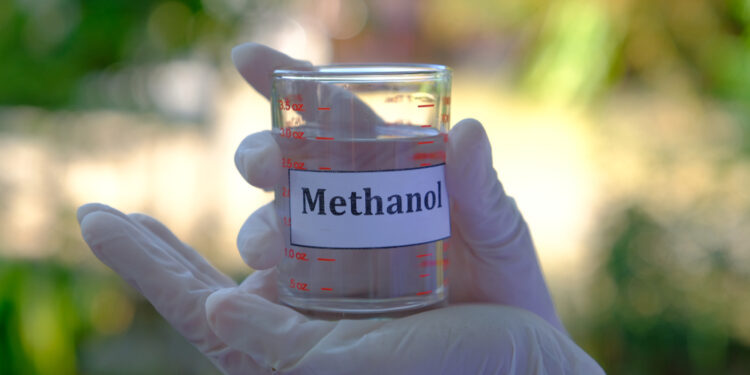NGOs and regulators alike should think bigger in addressing local pollution and the impact of climate change, says Chris Chatterton, The Methanol Institute
It’s fair to say that the outcome of IMO’s PPR 8 meeting in late February cannot have pleased the NGOs which had so vocally called for rapid imple mentation of the Heavy Fuel Oil ban in the Arctic.
Instead, the IMO’s proposal to develop non-binding, goal-based guidelines means that each country can take its own approach to reducing black carbon emissions, on its own time-scale, with no requirement for implementation or enforcement.
Disappointing perhaps, but it doesn’t have to be this way.
The argument that the NGOs advanced – that shipping in the Arctic should switch to MGO or MDO – in our view does not go far enough in solving the problem. Although these fuels are somewhat cleaner than HFO, they still create harmful emissions of particulate matter, in sizes smaller than can easily be captured.
If vessels using diesel or MGO are required to install and use particulate filters, as are already required by land-based transport, then this suggests a quick ‘scrubber-style’ fix rather than a long term solution. And unlike scrubbers there’s no commercial upside, only more cost and waste to manage.
The ban on the use and carriage of HFO in the Arctic was adopted in November 2020, though its loopholes will mean minimal reductions in the use and carriage of HFO until mid-2029 when the exemptions are closed.
Methanol could provide a natural solution in the decade and beyond it will take for HFO to be removed as a marine fuel in Arctic waters. Even in conventional form as a marine fuel methanol already has lower carbon emissions compared to HFO and contains no black carbon.
Compared to fuel oil methanol contains no SOx (<99%) and almost no PM (<95%), while NOx emissions (<60%) can be abated to Tier III standards by emulsion with water.
In renewable form, made by electrolysis, from biomass or Direct Air Capture it would offer a carbon-neutral fuel that would enable the industry to sail more cleanly with MGO and MDO needed only as pilot fuel (just 3-5%). Bio-methanol in particular can be cost-competitive to other biofuels today and offers an immediate renewable option.
Methanol is highly biodegradable, and has unmatched credentials in terms of spill risk, which is essential when operating in pristine Artic marine environments. Methanol is miscible in water and poses almost no health risk to marine life; nearly 200 times more Methanol would be needed to kill half the number of fish than would be killed by the same amount of marine heavy fuel oil.
If Methanol seems like an exotic solution then think again. This is the only alternative fuel other than LNG with operational experience and does not share LNG’s issues with methane slip across its supply chain.
Methanol has a three to five critical years’ of head start of experience-building and applicability as an alternative fuel, enabling vessel operators to move forward with emissions reduction in a phased way at low cost to OPEX and CAPEX. Eleven Methanol-powered ships are already in operation and another 11 are on order, with more selected for retrofits and newbuildings, including AP Moller-Maersk which has announced that its first carbon neutral feeder-ship would be sailing by 2023.
To understand the impact of using Methanol as a dual fuel, the Methanol Institute worked with Hyundai Mipo Dockyard to design a 50,000dwt tanker. The resulting vessel had construction capex premium of just 10% (compared to 22% for LNG-dual fuel) and had estimated cargo loss of 0.5%, presenting shipowners with the ability to build a low emission vessel that would not become a stranded asset.
If it is to act seriously on getting to net carbon neutrality, the maritime industry needs better information on which alternative fuels provide practical, adoptable choices, which comply with prevailing regulation and offer manageable investment, operational and financial risks.
In its 2040 scenario for shipping, class society DNV forecasts that, instead of a transition via LNG, the fleet will shift directly to carbon-neutral Methanol or Ammonia, with bio-MGO and e-MGO as drop-in fuels for existing ships. Smart operators are already studying alternatives and making investment decisions.
The shipping industry knows that the use of HFO is unsustainable and issues around the PM content of even very low sulfur fuel oil raise serious questions that need to be addressed.
Distillates solve only half the issue at best, but the key is not to be dogmatic about doing something. It is possible to act now, using Methanol to progressively move the shipping industry towards sustainability – and not just in the Arctic.
The views presented hereabove are only those of the author and do not necessarily those of SAFETY4SEA and are for information sharing and discussion purposes only.






























































